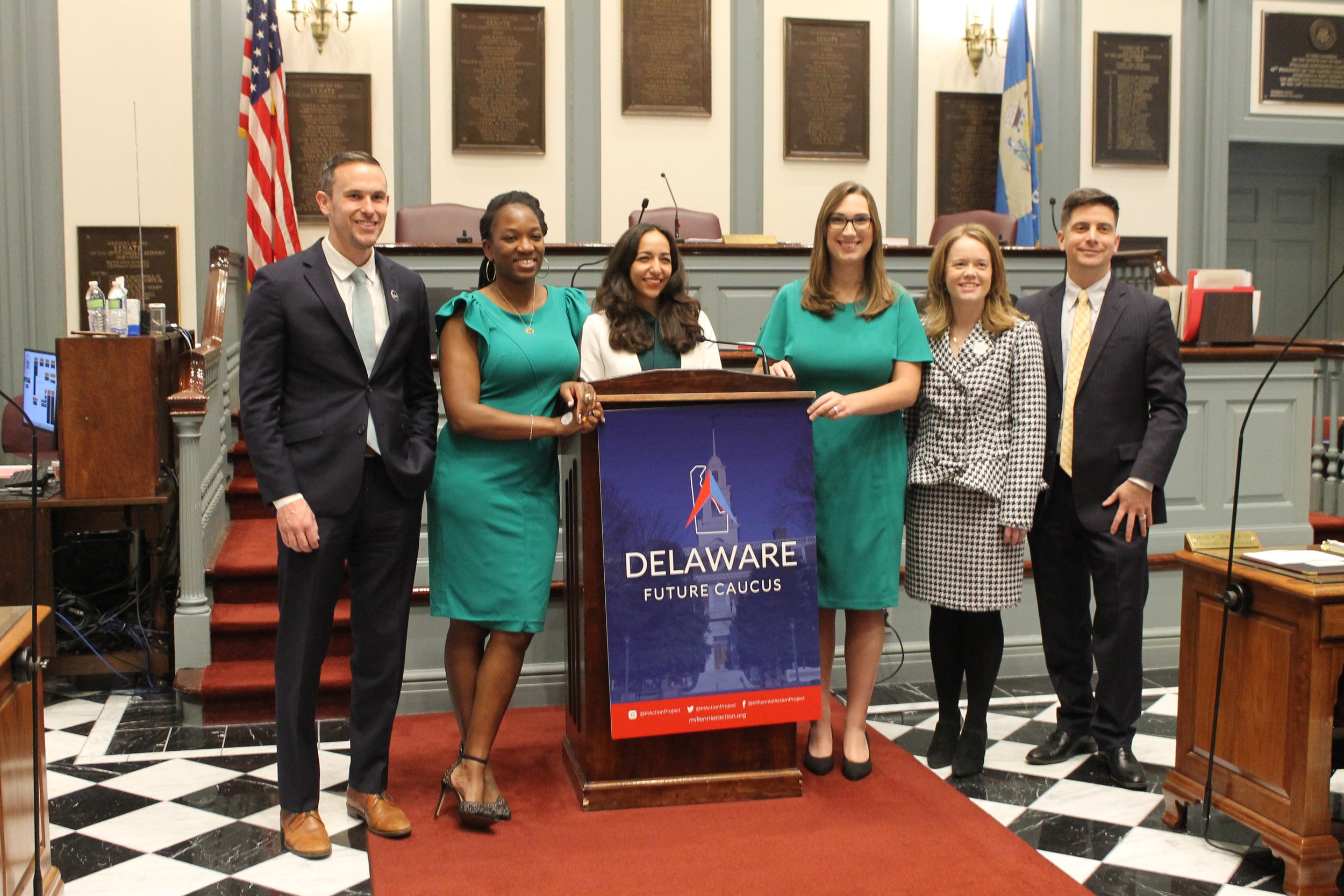A new generation of legislators
March 29, 2023
A bi-partisan group of young Delaware legislators have formed a new caucus in the Delaware General Assembly aimed at encouraging collaboration across the aisle on issues impacting younger Delawareans.

-
Published Mar 29, 2023 at 11:30 am

Legislative members of the Delaware Future Caucus
Millennial Action Project
A bi-partisan group of young Delaware legislators have formed a new caucus in the Delaware General Assembly aimed at encouraging collaboration across the aisle on issues impacting younger Delawareans.
It’s called the Delaware Future Caucus and it was organized with the assistance of a national organization called the Millennial Action Project.
“We thought it was a good time to create that vehicle, if you will, for the future dialog of what the future of Delaware is going to look like,” said Republican State Representative Mike Smith who is a co-chair of the new caucus.
Smith says the group enjoys healthy, productive debate and each will be bringing issues to the table important to them and their constituents. For Smith, it’s jobs.
“Others might be focused on the environment or social justice or whatever it may be,” said Smith. “That will be up to them to bring their priorities to the table so we can all discuss it together and hopefully make a measured impact.”
The new caucus is being formed through the Millennial Action Project which promotes collaboration among young elected officials regardless of party affiliation, across the country.
“The one thing about this group is we like healthy debate. We don’t shy away from it like the fringes do,” said Smith.
Other caucus leaders are Republican state Representative Bryan Shupe and Democratic state senators Sarah McBride and Kyle Evans Gay.
Delaware is the 32nd state to join the Millennial Action Project network.






Join 1,900+ BIPARTISAN LEADERS NATIONWIDE
Be a part of a network of lawmakers committed to governing effectively, passing more representative public policy, and increasing public trust in democracy.